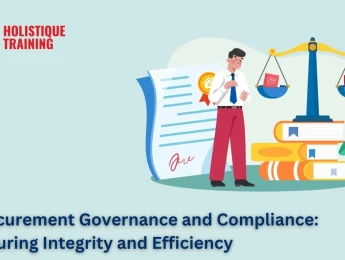Beach entertainment is a lucrative business, with billions of beachgoers each year. Food and drink is one of the most profitable areas within beach entertainment, as holiday-makers look for quality and convenience to add a little luxury to their day. As a business owner within the food and beverage industry, you must have the knowledge and skills to navigate this unique business opportunity at the coast.
You need to understand the intricacies of managing food and beverage businesses in beach environments. This course covers a wide spectrum of topics essential for success, from understanding the seasonal nature of beach destinations to tailoring menus that resonate with beachgoers. It will delve into the nuances of creating a memorable and profitable beachside culinary experience.
Our focus extends beyond traditional restaurant management as we explore the intricacies of beach-specific considerations, such as managing outdoor seating, optimising beachfront spaces, and aligning operations with the natural ebb and flow of beach tourism. We'll delve into sustainable practices, sourcing local ingredients, and creating a unique culinary identity that resonates with the beach locale.
Additionally, this course addresses crucial aspects of customer experience, emphasising the importance of creating a welcoming atmosphere that complements the beach environment, from efficient service strategies to incorporating beach-themed events and promotions.
Upon completion of this course, participants will be able to:
- Market and brand a successful food and beverage establishment at the beach.
- Understand the variations in target markets based on location.
- Assess the business for risks and undergo all health and safety inspections.
- Handle the difficulties in seasonality and be flexible.
- Manage employees remotely at off-site locations.
- Understand the impacts and implications of a food and beverage business on the local community and wider environment.
This course is designed for anyone who owns or operates within a holiday destination's food and beverage market. It would be most beneficial for:
- Business Owners
- Beach Entertainers
- Customer Service Specialists
- Chefs
- Marketing Managers
- Social Media Professionals
- Health & Hygiene Assessors
- Risk Assessors
- Financial Executives
This course uses a variety of adult learning styles to aid full understanding and comprehension. Participants will review a selection of beach side restaurants and food establishments to understand the reasons for their particular style and marketing based on location. They will also undergo a trainer-led discussion based on the best types of locations for their own business.
Participants will then take part in a group activity to discuss various menu options and branding styles based on specific locations and work together to design a lucrative business idea based on seasonality, diverse menus and target audience
Day 5 of each course is reserved for a Q&A session, which may occur off-site. For 10-day courses, this also applies to day 10
Section 1 : Planning Your Location
- Site selection criteria for a beachside food and beverage business.
- Designing a functional and attractive beachside business layout.
- Licensing requirements for serving food and beverages on the beach.
- Health and safety considerations in beachside food and beverage operations.
- Budgeting and financial planning for starting a beachside business.
- Developing a comprehensive business plan for investor presentations.
Section 2 : Catering for the Masses with Your Menu
- Market research and understanding target customer demographics.
- Menu planning and pricing strategies for beachside offerings.
- Vendor selection and negotiation for supplies and equipment.
- Understanding the target audience for a beachside restaurant.
- Market research and customer segmentation strategies.
- Creating a tailored menu to meet diverse customer preferences.
- Designing a beachside dining ambiance that appeals to the target audience.
Section 3 : Diversification with Your Menu
- Personalising customer service and hospitality for different demographics.
- Utilising technology for efficient order placement and customer engagement.
- Incorporating cultural and local elements in the dining experience.
- Dietary considerations and accommodating diverse culinary preferences.
Section 4 : Your USP
- Creating a unique and memorable beachside dining experience.
- Collaborating with local artists or influencers for added uniqueness.
- Building partnerships with local businesses for joint promotions.
- Establishing exclusive events or offerings for a limited time.
- Integrating storytelling into the brand narrative to evoke emotion.
- Implementing sustainability initiatives as part of the USP.
Section 5 : Seasonal Beach Destinations
- Adapting to seasonal variations and peak tourist period.
- Analysing peak and off-peak periods for beach tourism.
- Developing a flexible business plan to accommodate seasonal fluctuations.
- Budgeting and financial planning for varying revenue streams.
- Marketing and promotional strategies tailored to different seasons.
- Managing staffing levels based on seasonal demand.
Section 6 : Sustainability & the Local Community
- Legal and regulatory considerations for establishing a beachside business.
- Environmental impact assessments and conservation measures.
- Sustainable practices in sourcing ingredients and waste management.
- Collaborating with local communities and authorities for support.
Section 7 : Customer Experience
- Gathering and analysing customer feedback for continuous improvement.
- Pricing strategies that align with the target audience's expectations.
- Emphasising customer service excellence as a key differentiator.
Section 8 : Marketing & Promotion of Your Establishment
- Marketing and branding strategies specific to beachside locations.
- Marketing strategies to attract and retain the target customer base.
- Loyalty programs and incentives for repeat business.
- Special events and promotions catering to specific customer segments.
Upon successful completion of this training course, delegates will be awarded a Holistique Training Certificate of Completion. For those who attend and complete the online training course, a Holistique Training e-Certificate will be provided.
Holistique Training Certificates are accredited by the British Assessment Council (BAC) and The CPD Certification Service (CPD), and are certified under ISO 9001, ISO 21001, and ISO 29993 standards.
CPD credits for this course are granted by our Certificates and will be reflected on the Holistique Training Certificate of Completion. In accordance with the standards of The CPD Certification Service, one CPD credit is awarded per hour of course attendance. A maximum of 50 CPD credits can be claimed for any single course we currently offer.
- Course Code IND10-107
- Course Format Classroom, Online,
- Duration 5 days











